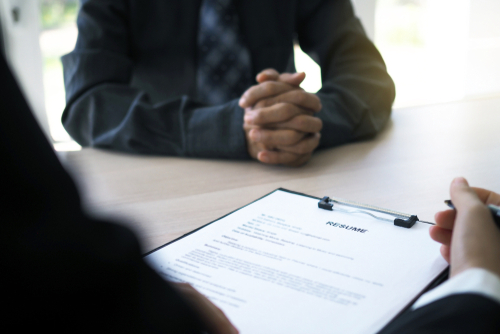Through these second interview tips you'll be able to pass this crucial step in most job application processes. Usually, the second interview aims to probe deeper into applicants' skills, experiences, and qualifications, and allows employers to learn more about an individual's ability to interact with colleagues, handle difficult situations, and think independently.
What is the Second Interview?
The Second Interview is typically a face-to-face meeting with a hiring manager or a panel of recruiters. It is essentially a continuation of the first job interview. It is used to get to know the applicant's personality and skills beyond the information in their resume or cover letter.
The Second Interview can take many forms, from a lengthy conversation to a series of tests. Generally, the questions asked during this stage are more in-depth than during the first interview and aim to explore their qualifications for the role and aptitude for the position.
Why is the second Interview a crucial step in the process?

The importance of the Second Interview cannot be overstated, as it is a great opportunity for hiring managers to learn more about an applicant’s skill set.
Successful performance in the Second Interview can give employers confidence and assurance that the job will suit the individual well. Additionally, the Second Interview allows applicants to showcase their personality, capabilities, and qualifications, thus providing employers with a more comprehensive and accurate understanding of their skillset.
How to Pass the Second Interview (Easy Tips)

To ensure success during the Second Interview, applicants must come prepared. Here are a few tips on how to pass the Second Interview:
Research the Company:
It is essential to research the company in more detail before the Second Interview. Familiarize yourself with their past projects, values, and services.
Prepare Relevant Examples:
Consider situations you have faced in previous jobs related to the position and prepare examples of how you handled these scenarios.
Demonstrate Confidence:
Confidence is key, as it shows that you believe in your own abilities, skills, and experiences.
Ask Questions:
Asking thoughtful questions will demonstrate your interest in the role and the company.
Be Honest:
Be genuine and honest about what you can bring to the role. Avoid exaggerating or embellishing your experiences.
Be Flexible:
Be open and available with the interviewer to schedule additional interviews. Even if you cannot attend, express your commitment and enthusiasm for the role.
Reiterate Your Qualifications:
Focus on and repeat the qualifications and skills you possess that make you an ideal candidate for the position.
Highlight Your Best Qualities:
Talk about the skills and qualities that make you the best person for the job, such as your creativity, drive, enthusiasm, or loyalty.
Be well prepared
- Dress to Impress: Second interviews are often more formal than the first. Wear professional clothing and be well-groomed.
- Practice your answers to common interview questions before the interview. This will help you feel more confident and comfortable during the actual interview.
- Reach Out to the Interviewer: Send the interviewer an email or call beforehand to ask any questions you may have and thank them for allowing you to discuss the role and company further.
Follow up after the interview.
- Follow up with a thank you note or email afterward. Remind the interviewer why they should hire you and how you can be an asset to their team.
The Second Interview is an essential step in most job application processes. It is a great opportunity for employers to gain more insight into applicants' skills, experience, and qualifications. With some preparation and research, it is possible to ace the Second Interview and increase your chances of success.








 2025-07-26
2025-07-26
 2025-06-02
2025-06-02
 2025-05-22
2025-05-22
 2025-05-16
2025-05-16
 2025-05-05
2025-05-05